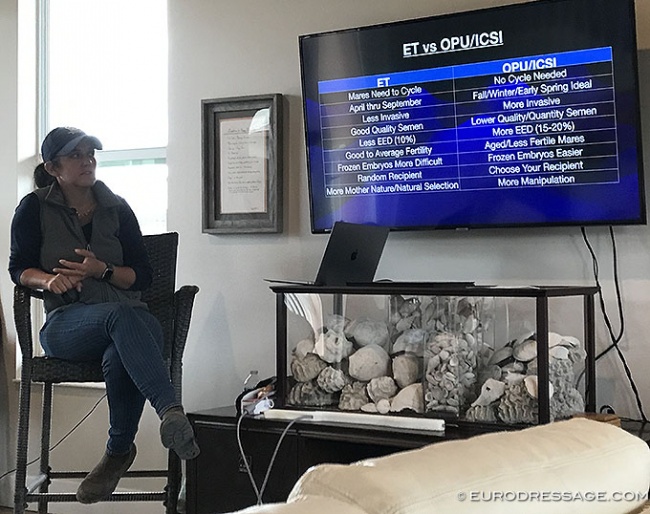
The Swedish warmblood society has decided to no longer register foals produced with the reproduction techniques OPU/ICSI as of 1 March 2025.
"The change is made with regard to the Animal Welfare Act, as it is a prohibited intervention in Sweden," SWB stated.
ICSI foals born in 2024 can still be registered with the studbook. The decision does not affect the reproductive technique of Embryo transfer (ET).
Animal Welfare
"We want to emphasize that horse welfare always weighs more heavily for SWB than purely commercial interests. We think that a clear ethical compass will be a success factor in the longer term," said Per Jansson, SWB's Chairman of the Board.
Laws and regulations about ET and ICSI procedures are different in various countries They are more strict in Sweden and Germany, for instance, but mare owners often have the procedure performed in Belgium, The Netherlands, or Italy to by-pass it.
What is ICSI?
Intracytoplasmic sperm injection (ICSI) is procedure which is known to be very unpleasant for mares because of OPU (Ovum Pick-Up) or TVA (Transvaginal Aspiration).
"You harvest the unfertilised egg. Lots of drugs go into your horse, sedation, NSAIDs, an epidural. It's a big procedure and very invasive as the ovary is manually retracted. Mares get uncomfortable," reproductive veterinarian Dr. Erin Newkirk (IUSA) told Eurodressage.
The procedure is costly and the success rate rather low.
ICSI is a very specialised technique which is often done for stallions who are dead or have poor sperm quality. It's micro-manipulation of the oocytes with the microscope.," said Newkirk. "Out of 14 follicles there will be 7 oocytes of which around 5 will mature and can be injected. It often leads to only 1 embryo and sometimes takes between 1 to 3 tries before you have a foal."
Related Links
It's All About Mare Power at the First Annual GOV-NA Breeders' Meeting at Poinciana Farm